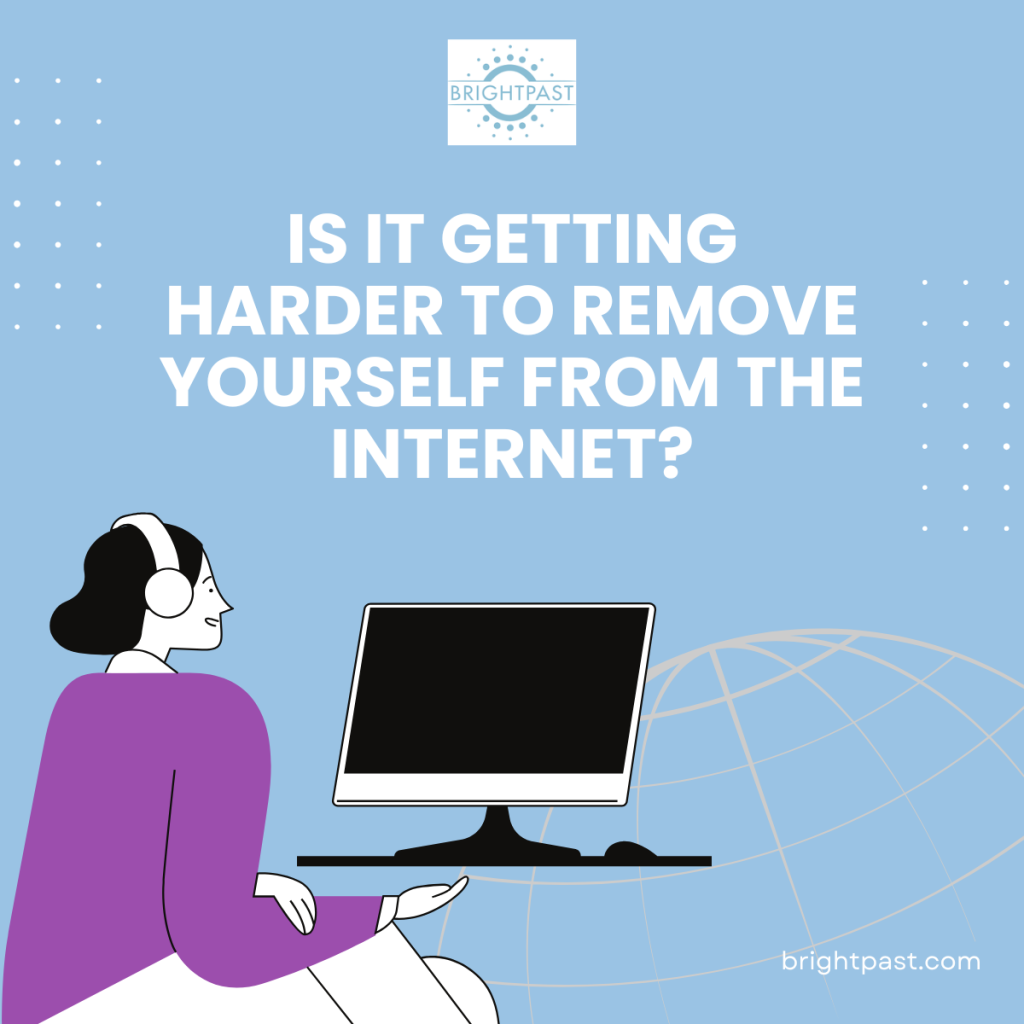Last Updated on March 19, 2025 by Bright Past
The online world never forgets. There might be a social media post or a blog comment you’ve almost forgotten about, and it might resurface 15 years later. Nevertheless, any personal data breaches are immensely difficult to remove.
To make it worse, today, a single photo can affect your reputation. All your past activity may resurface at the worst possible moment – when you least expect it. Recruiters, advertisers, and even cybercriminals can easily access any information you have shared online and use it against you.
While permanently deleting content from the Internet is almost impossible, there is an option to suppress the information.
Wondering what does it mean to suppress Google results? It simply refers to pushing down and burying the information, making it less accessible for searchers. The information will not be invisible, but it will be less reachable.
Learn why it gets harder to remove yourself from the internet day by day and how to deal with it.
Why Removing Yourself Isn’t Easy
Removing yourself from the internet is anything but easy, and here’s why:
Your Data Is Shared Beyond Your Control
Once you share information online, it no longer belongs solely to you. Whether you’re creating an account, subscribing to a service, or posting on social media, your personal information becomes publicly accessible. Online retailers may copy, store, and even sell your data.
- Data Brokers and Persistent Storage: Data brokers collect your information from various subscriptions. It becomes nearly impossible to track down all the places where your data is stored. Therefore, even if you manage to remove it from one location, multiple copies might still exist elsewhere.
- Search Engines and Cached Data: Deleting data from a website doesn’t guarantee its removal from the internet, as search engines often save information in cached servers. This means your data can linger even after you’ve attempted to delete it.
- Social Media and Permanent Archives: Social media platforms may retain your photos and other data even after you’ve deleted your account. Furthermore, there’s always a possibility that someone else has saved or captured your information without your knowledge.
Disconnecting from the Internet is Hard
The internet is designed to keep users engaged, and here’s how it ensures you stay connected:
- Business Model Dependency on Data: Online businesses, products, and services thrive on user data. It’s in their interest to keep users coming back, making it challenging for individuals to disconnect completely.
- Social Media’s Grip: Many social media platforms make it difficult to permanently delete an account. Often, they only allow users to disable their accounts, which can be reactivated, hoping this temporary step makes users reconsider leaving. Even after deleting an account, some of your content might remain accessible indefinitely.
- Ad Tracking and User Profiling: Companies gather large amounts of data to tailor advertising to individual preferences. This persistent data collection means your online behaviors and preferences are constantly tracked and analyzed.
- AI and Data Permanence: Artificial intelligence systems archive personal data, meaning once your information is absorbed into AI databases, it may exist indefinitely. This use of data helps refine algorithms but makes true anonymity or erasure from the internet nearly impossible.
Fear of Disconnection
In addition to the technical challenges of disconnecting from the internet, there is a significant psychological barrier for many. Online banking, email, social media, and various subscriptions are deeply integrated into modern life, creating a dependence that is hard to break.
The idea of completely removing oneself from this interconnected world can induce fear and anxiety. The concern about losing connections and the convenience of easy access to services is daunting for many. As a result, rather than completely disconnecting, many people choose to reduce their digital footprint as a more manageable alternative.
Avoid Going Nuclear
Removing information from the digital world can be a time-consuming and daunting task. Often, individuals hesitate to engage in the process, especially when dealing with sensitive or harmful content. Involving legal authorities can expedite the removal process, but seeking legal help, particularly for issues like explicit photographs, may not be a comfortable experience for everyone. As a result, many are reluctant to take such drastic steps unless absolutely necessary.
The Right To Be Forgotten Doesn’t Always Apply
In the European Union, citizens can fill out a request form to remove content. In the United States, it is limited to explicit personal information.
Google inspects removal requests one at a time, but, if what you are trying to remove has been labeled as relevant information on Google, it may still not be deleted.
Take Your Digital Footprint In Your Hands!
Your digital footprint is permanent, but you can take the right measures to minimize its impact. Take control now – get started with Brightpast! Suppress irrelevant content, improve security, and protect yourself with just a few clicks.
